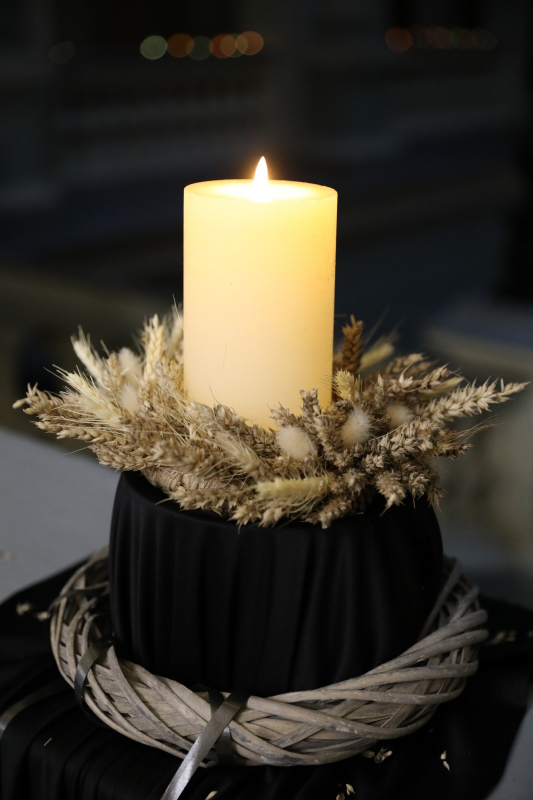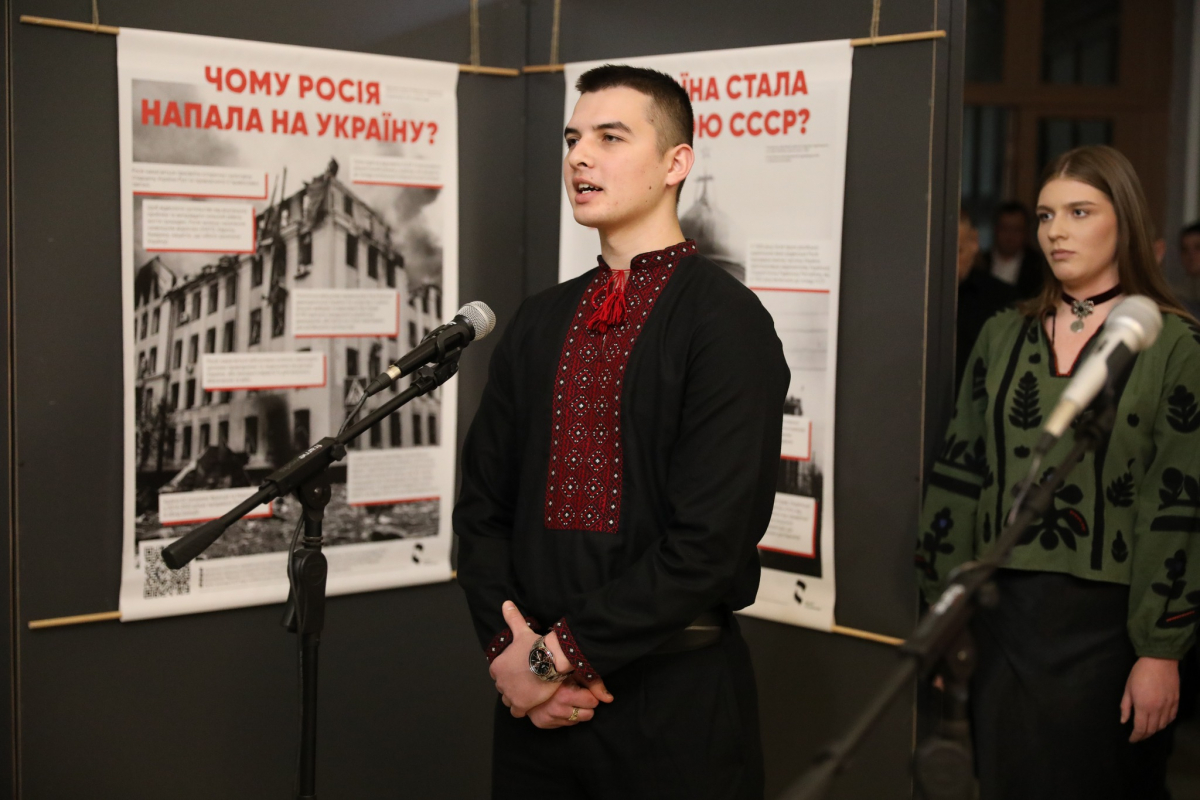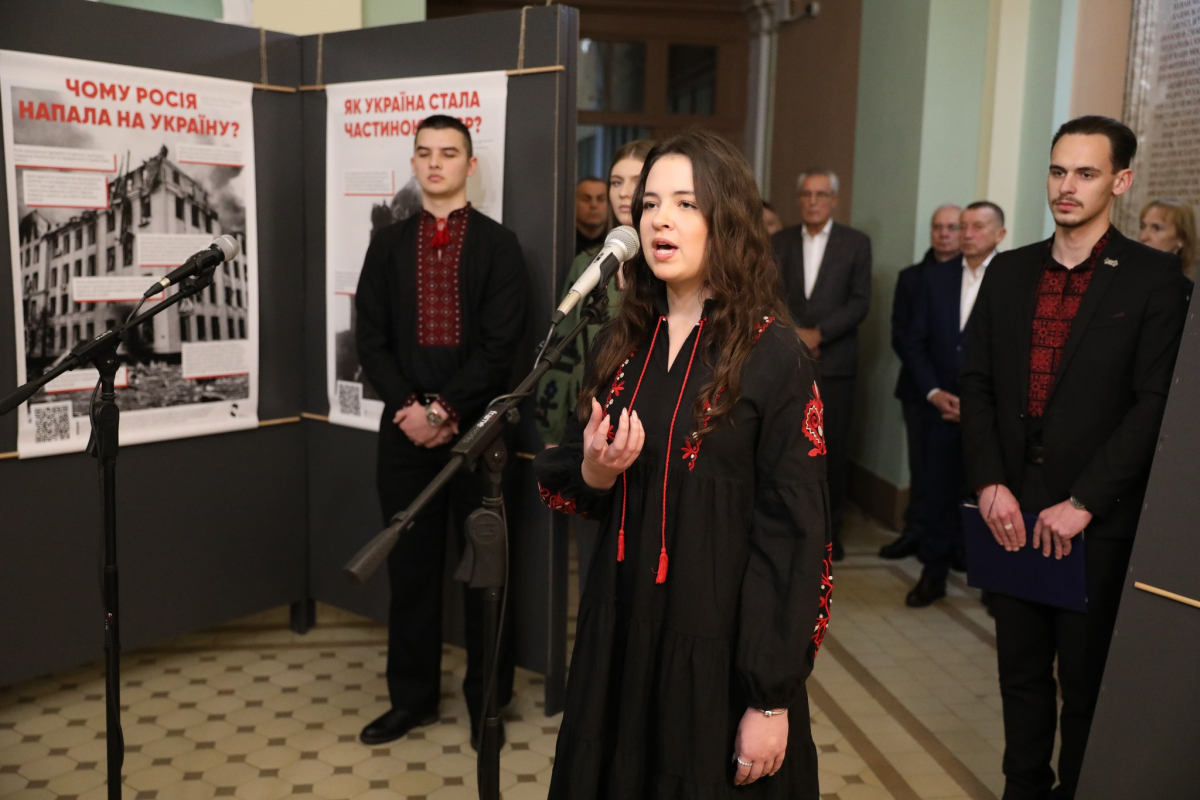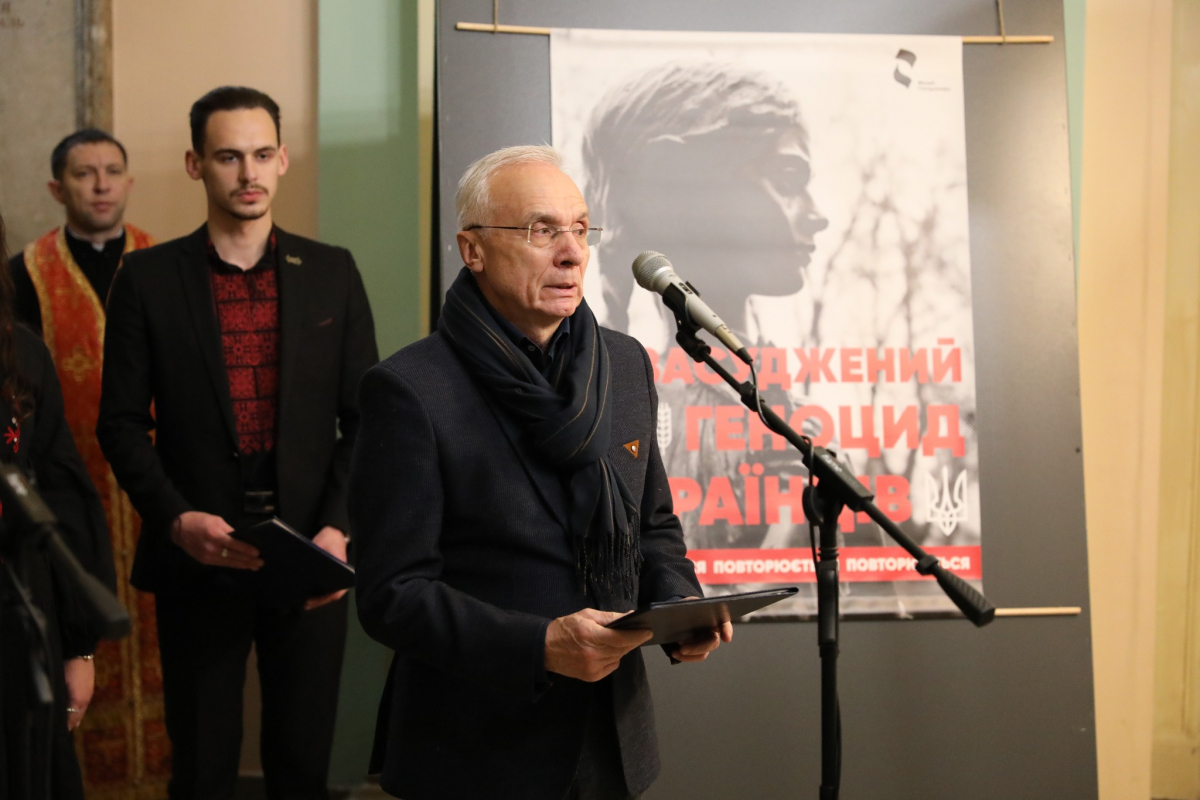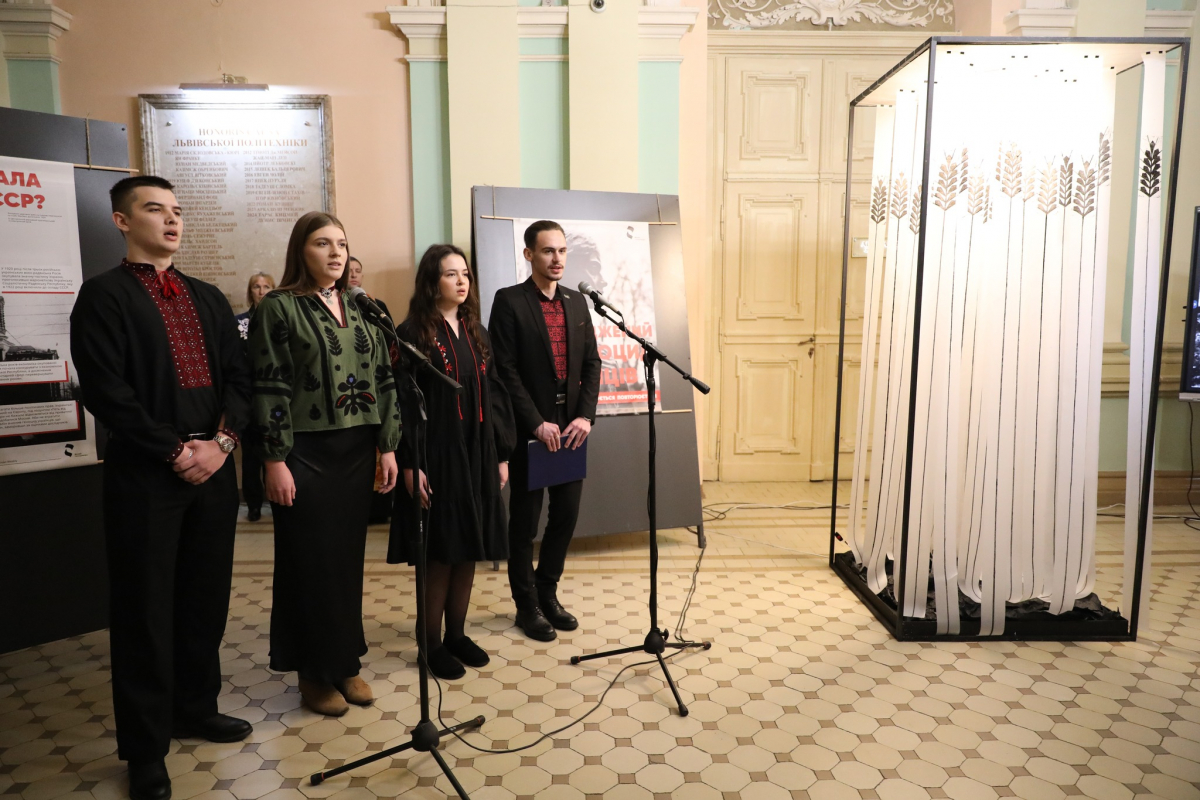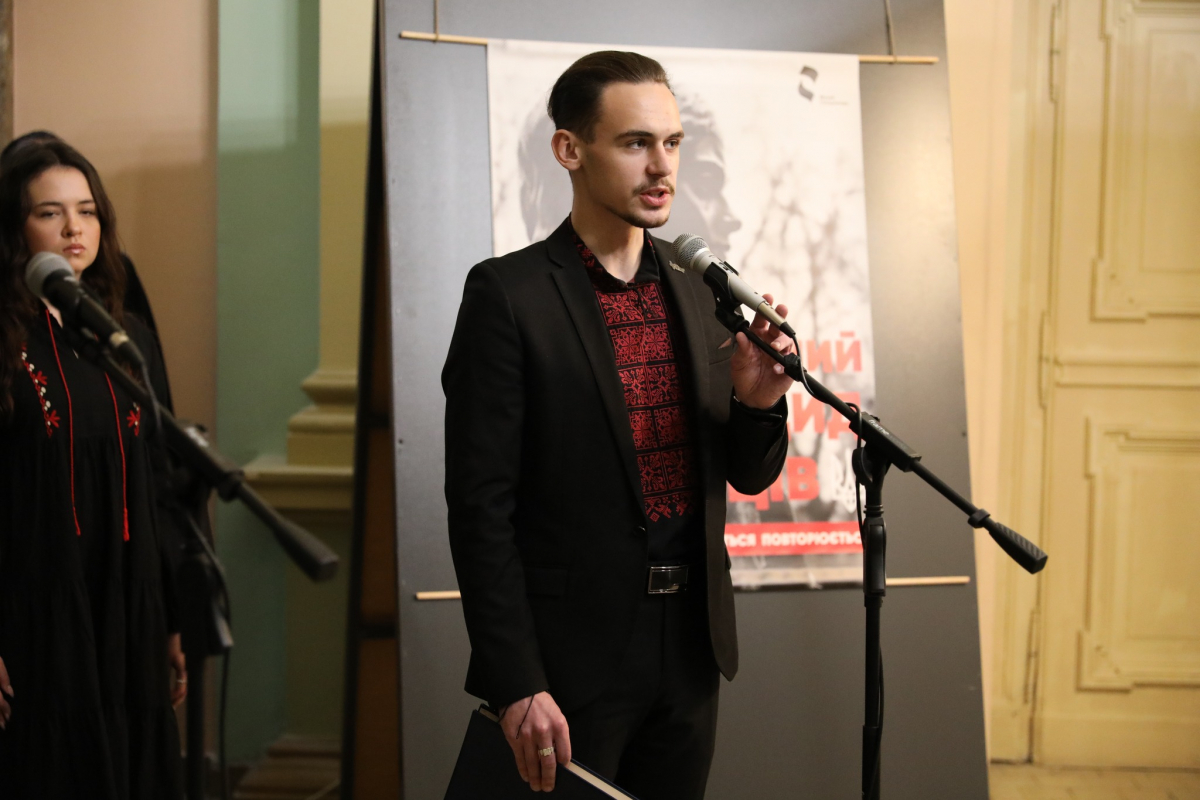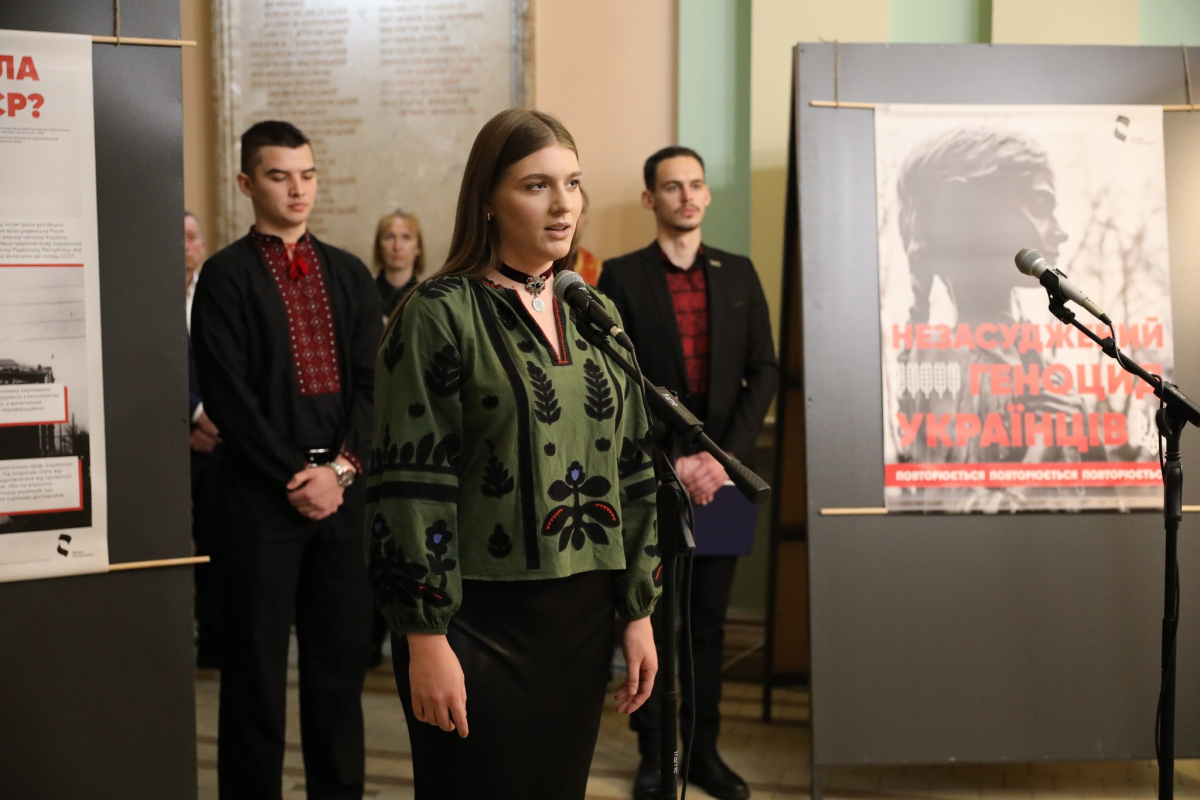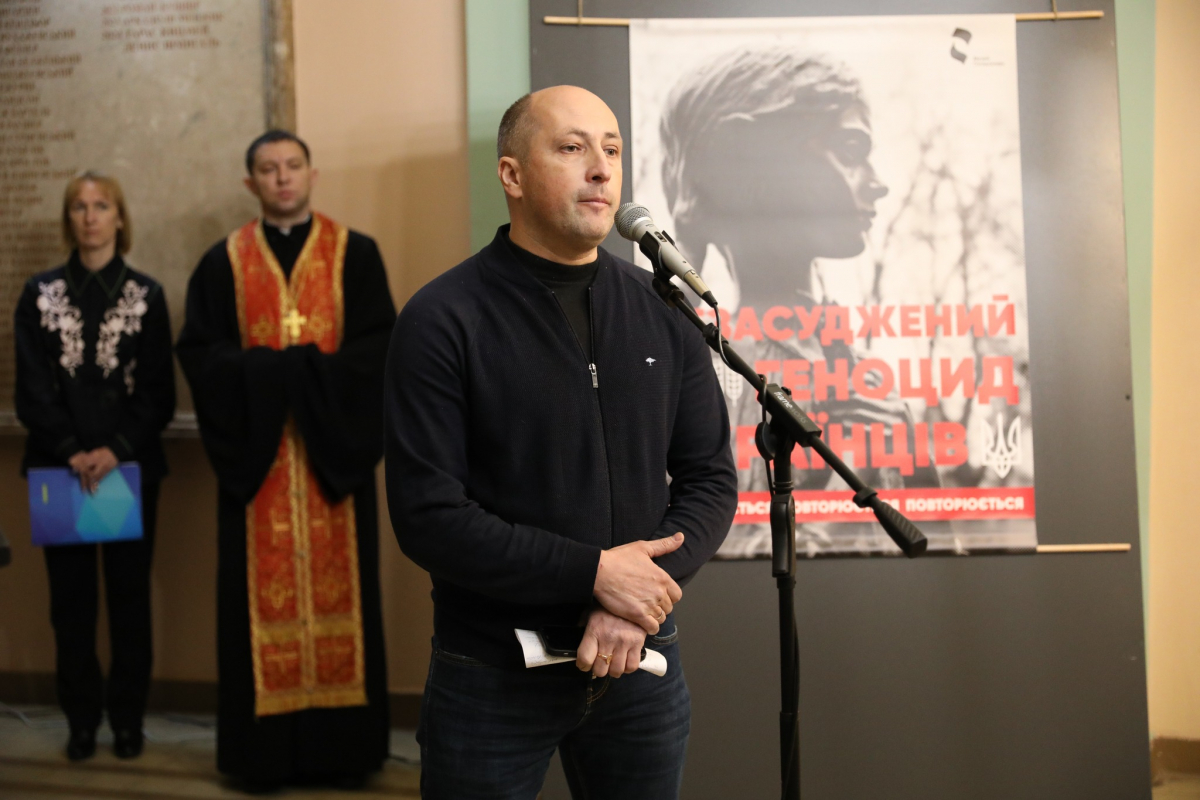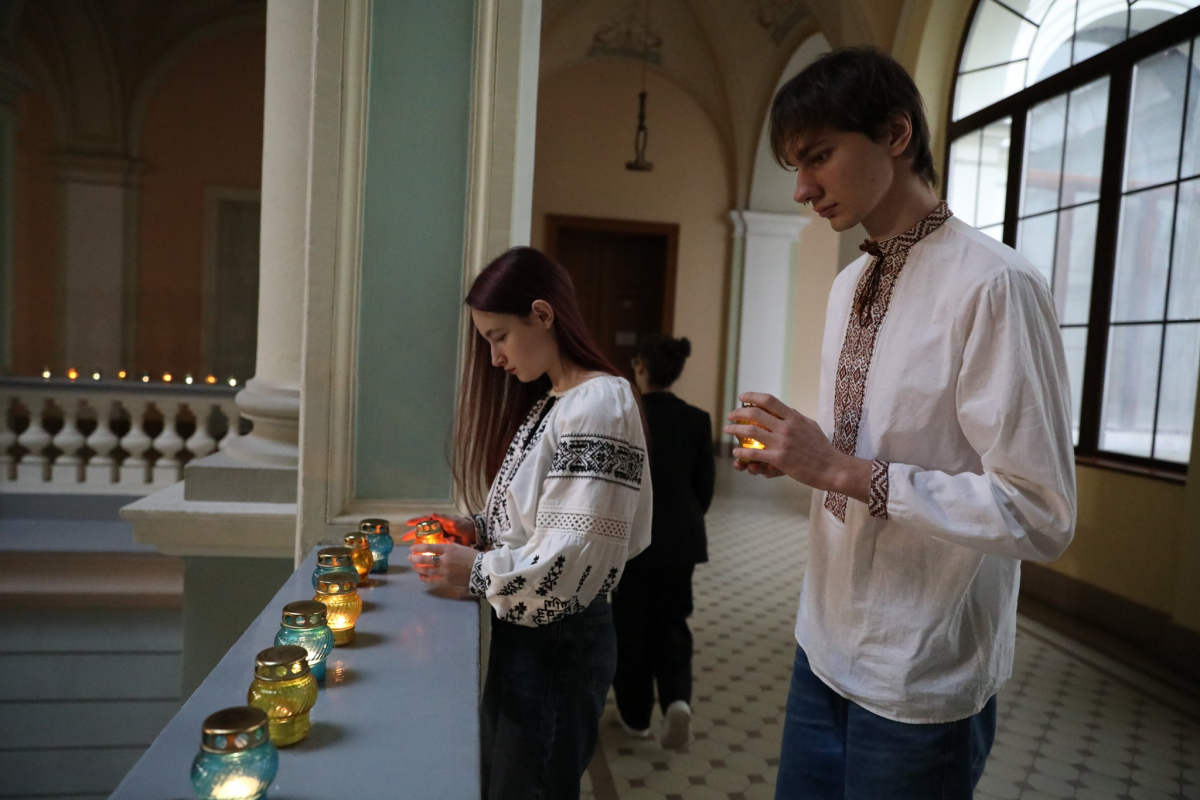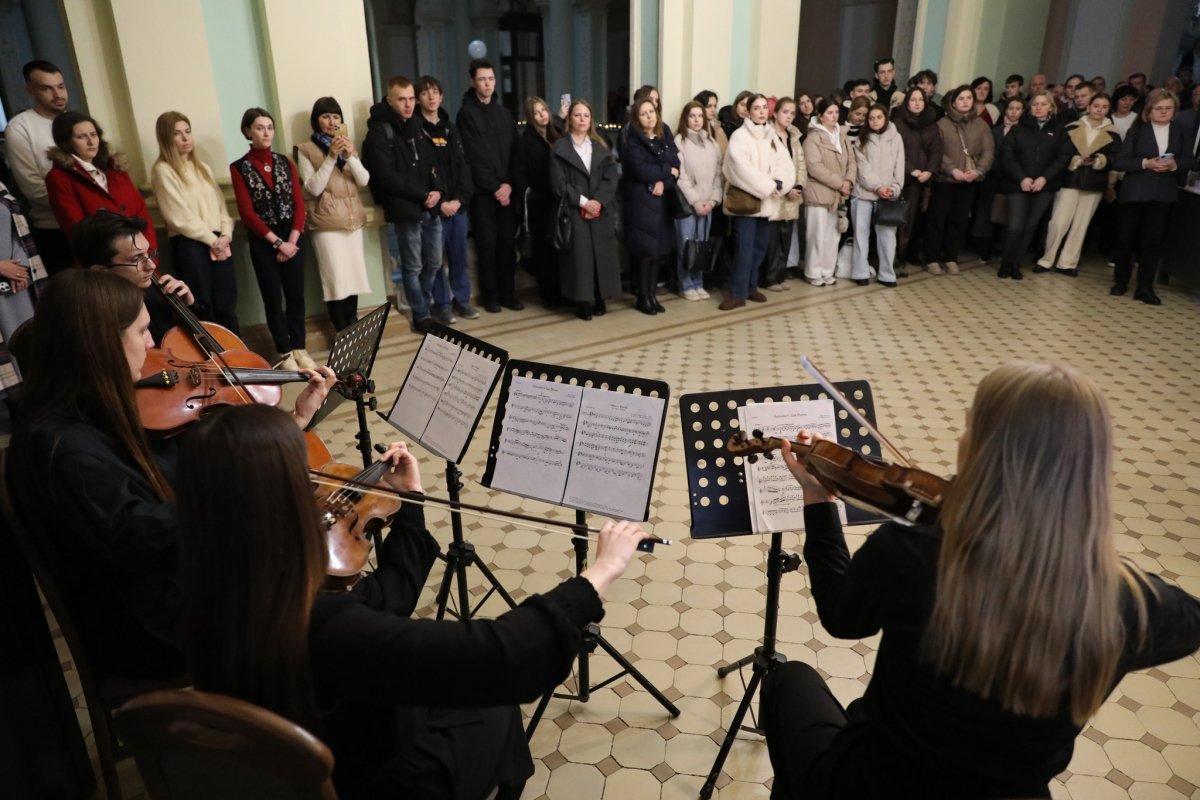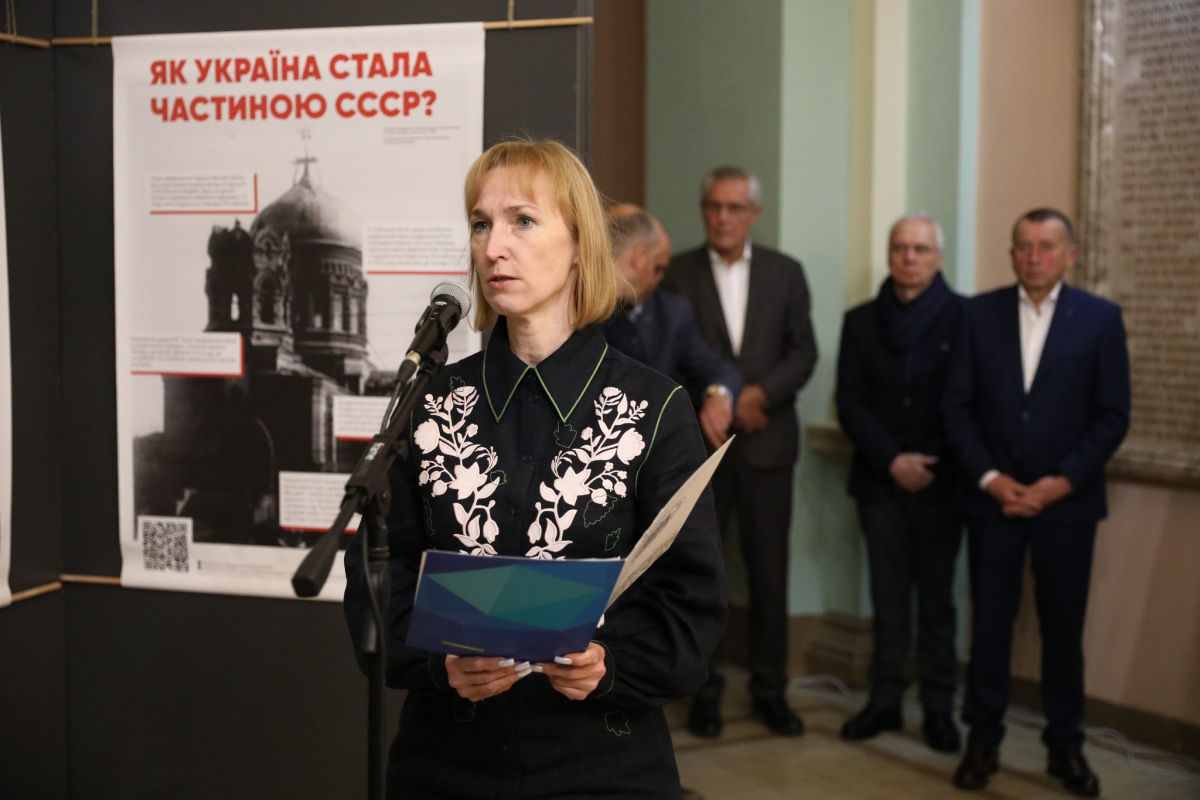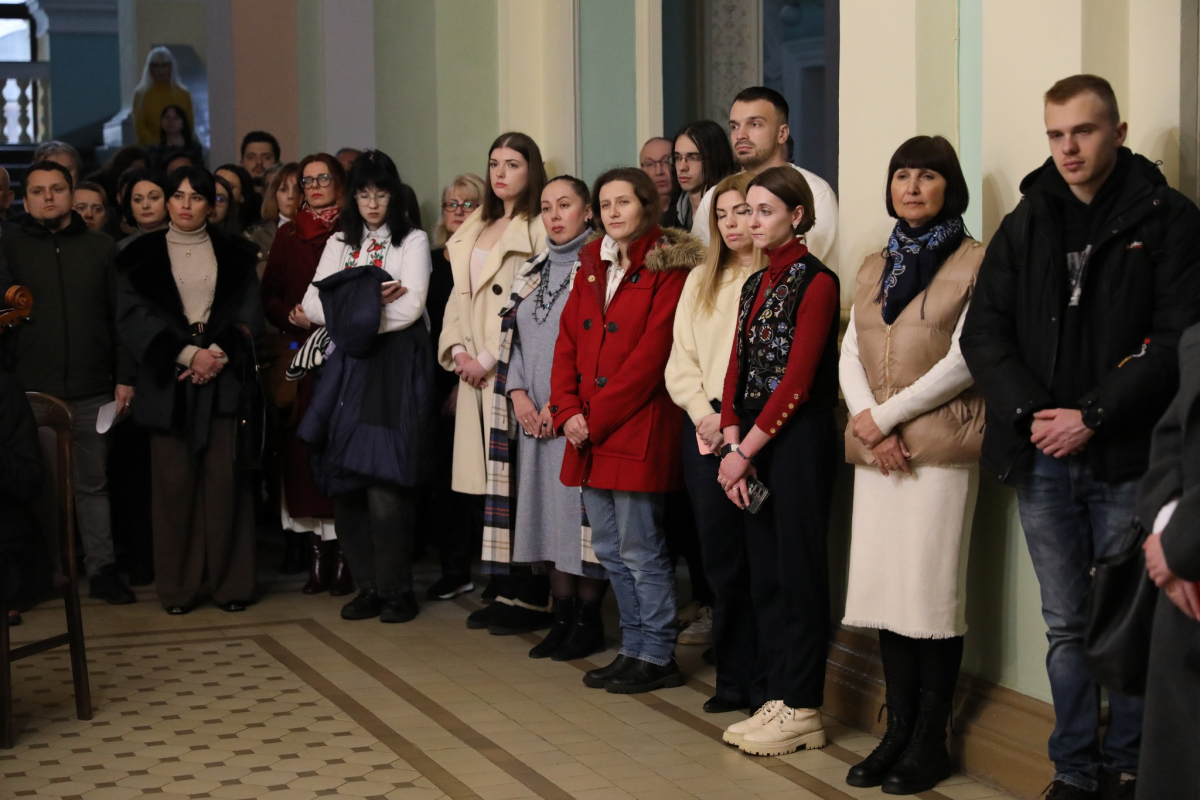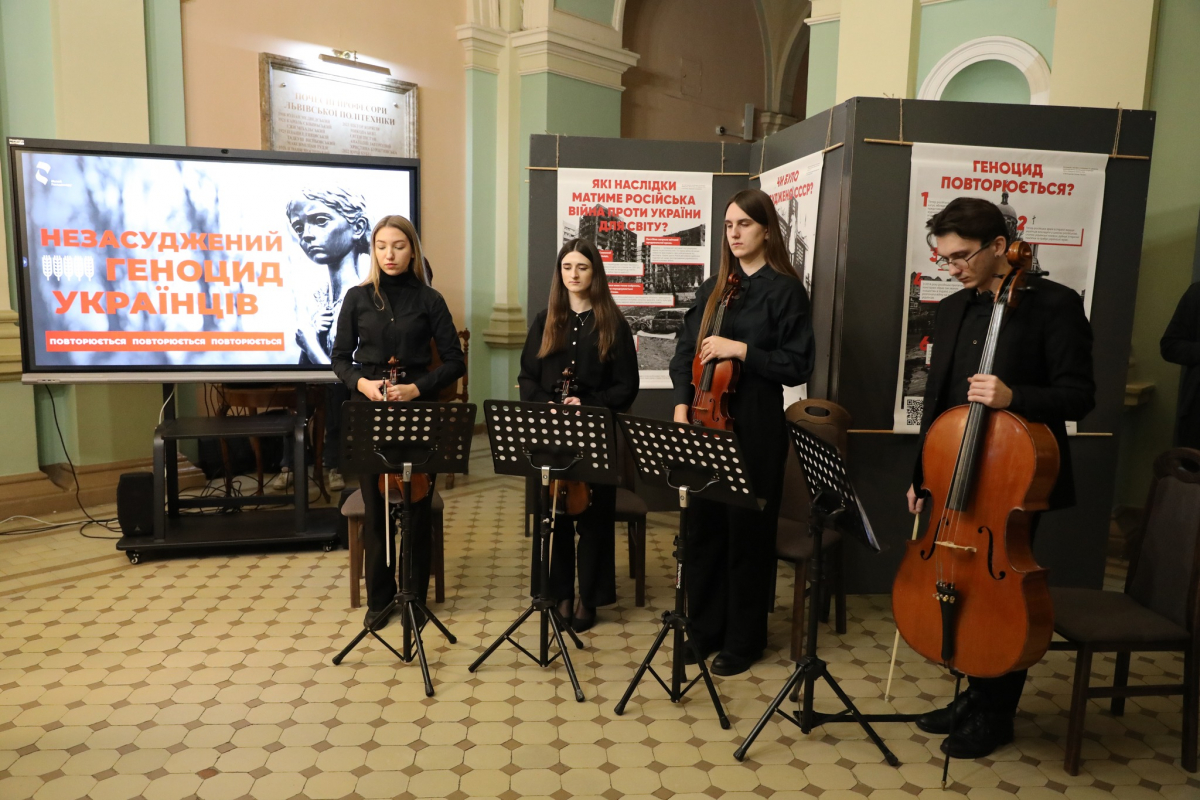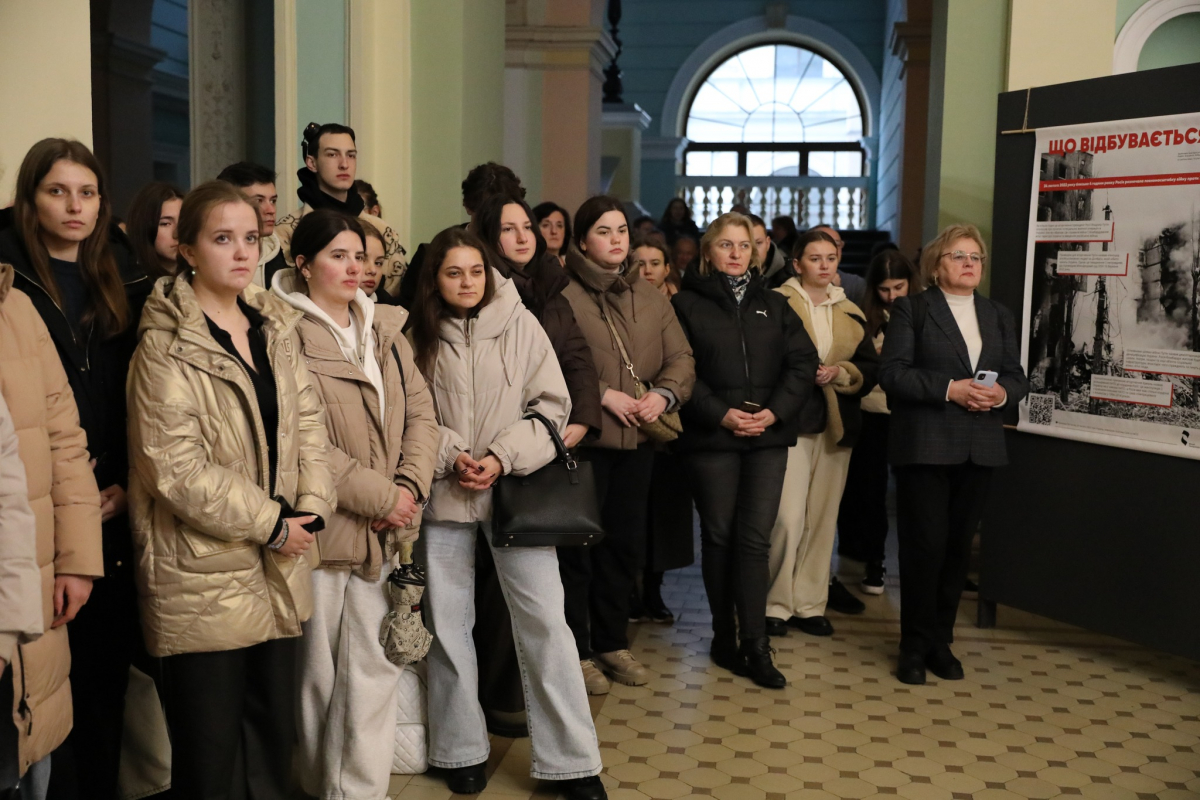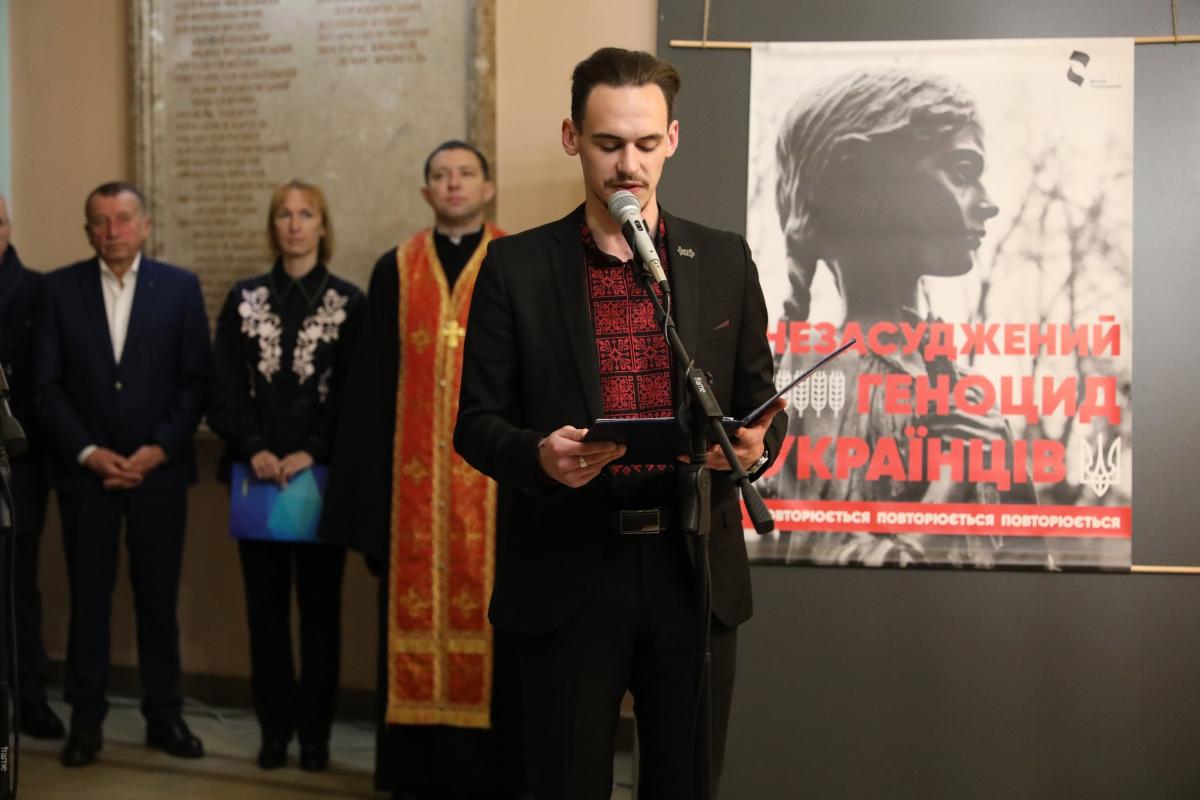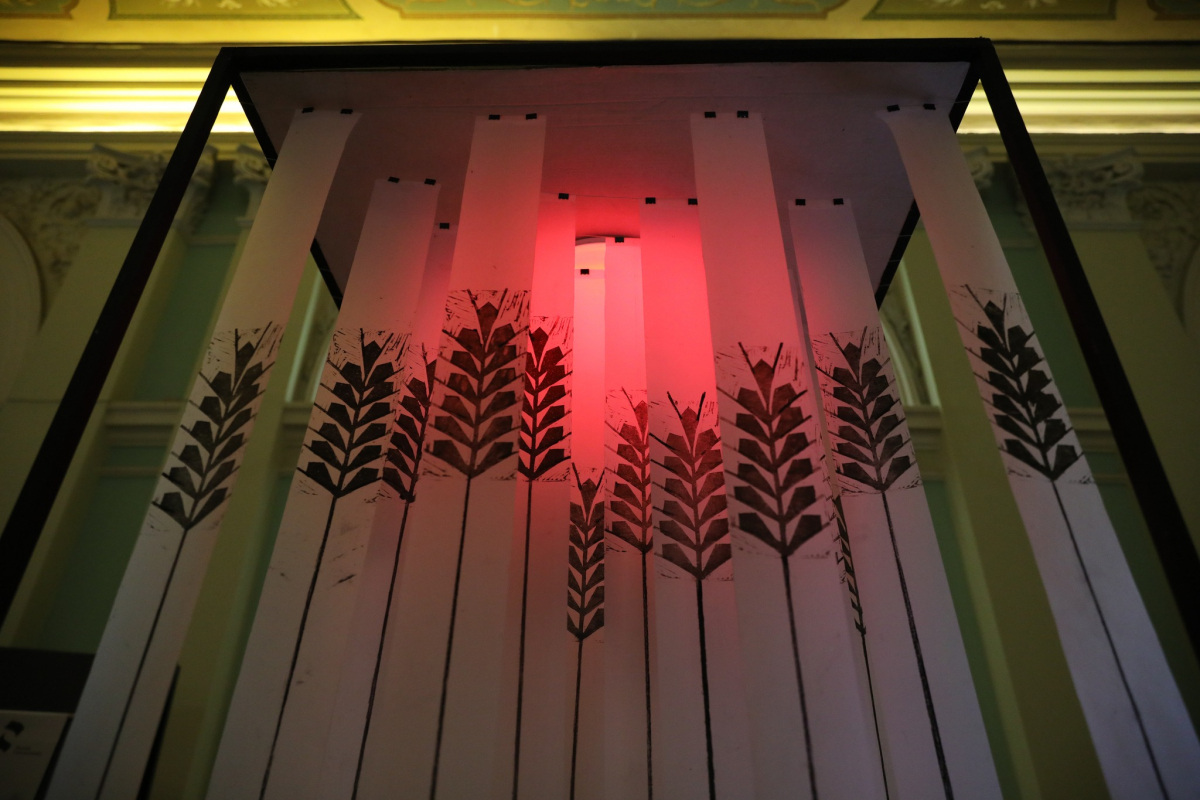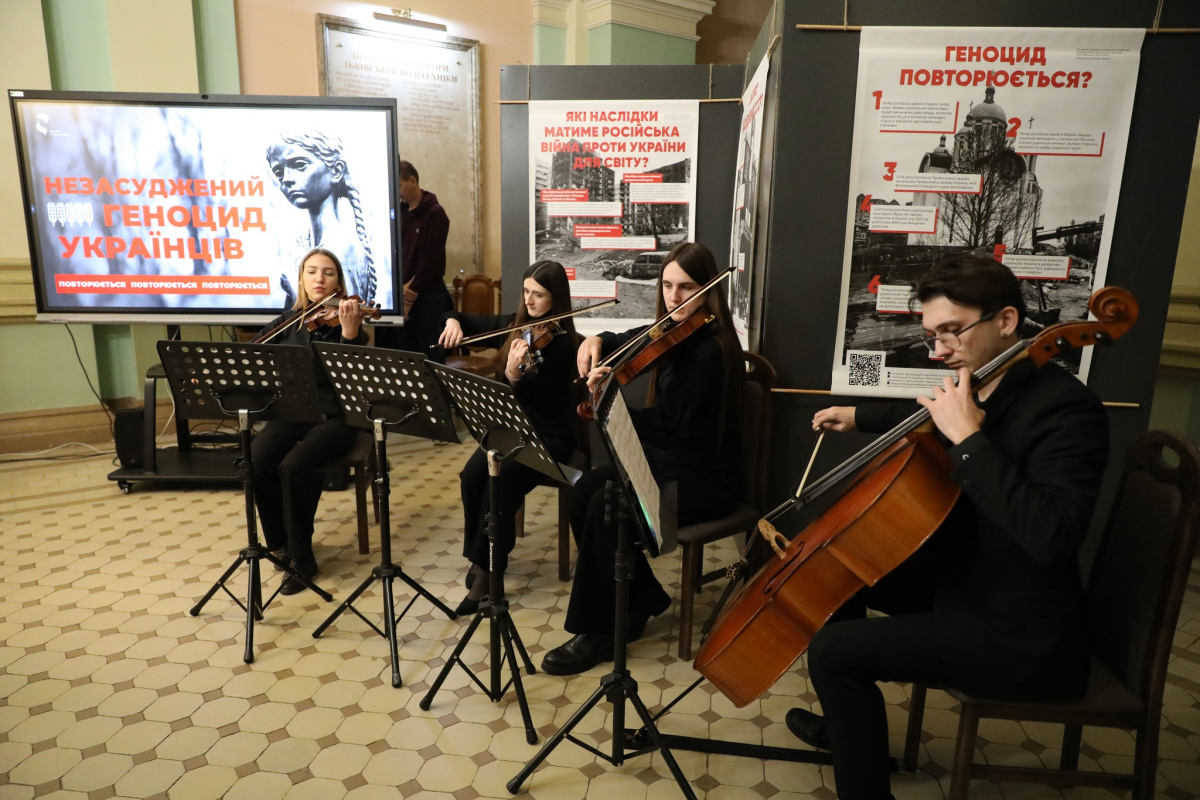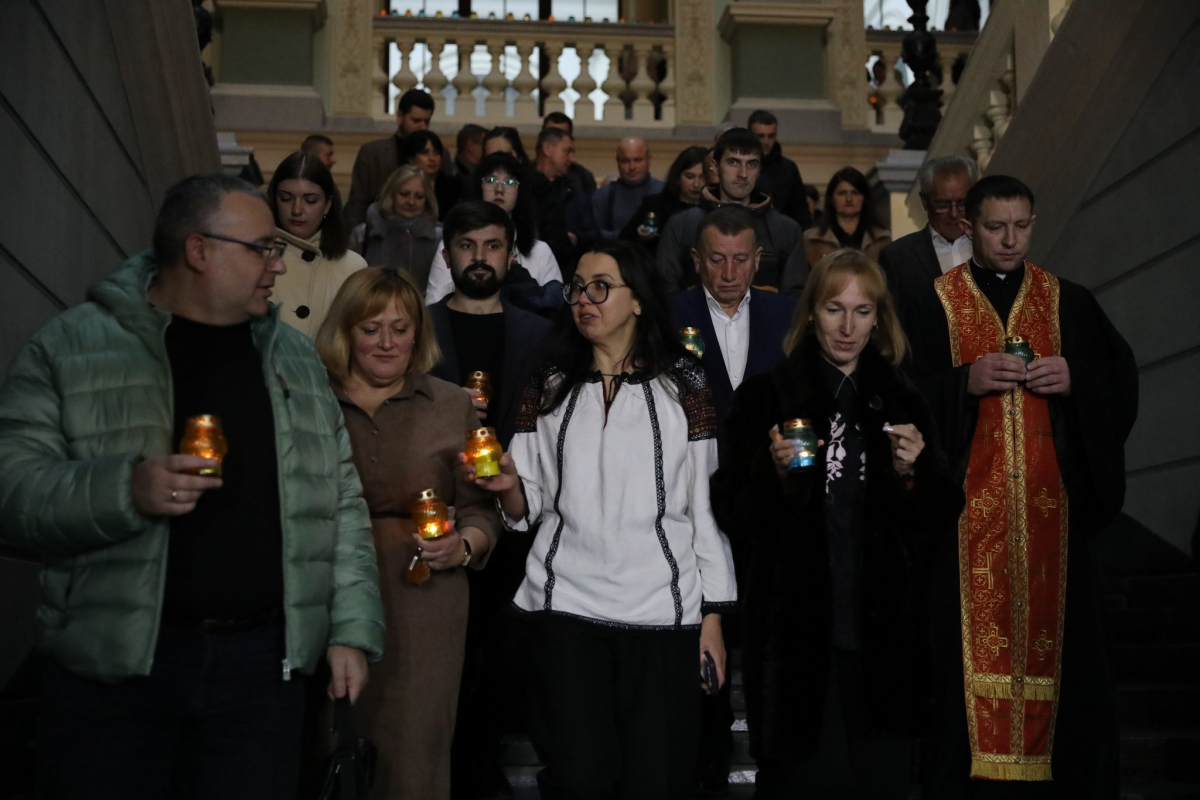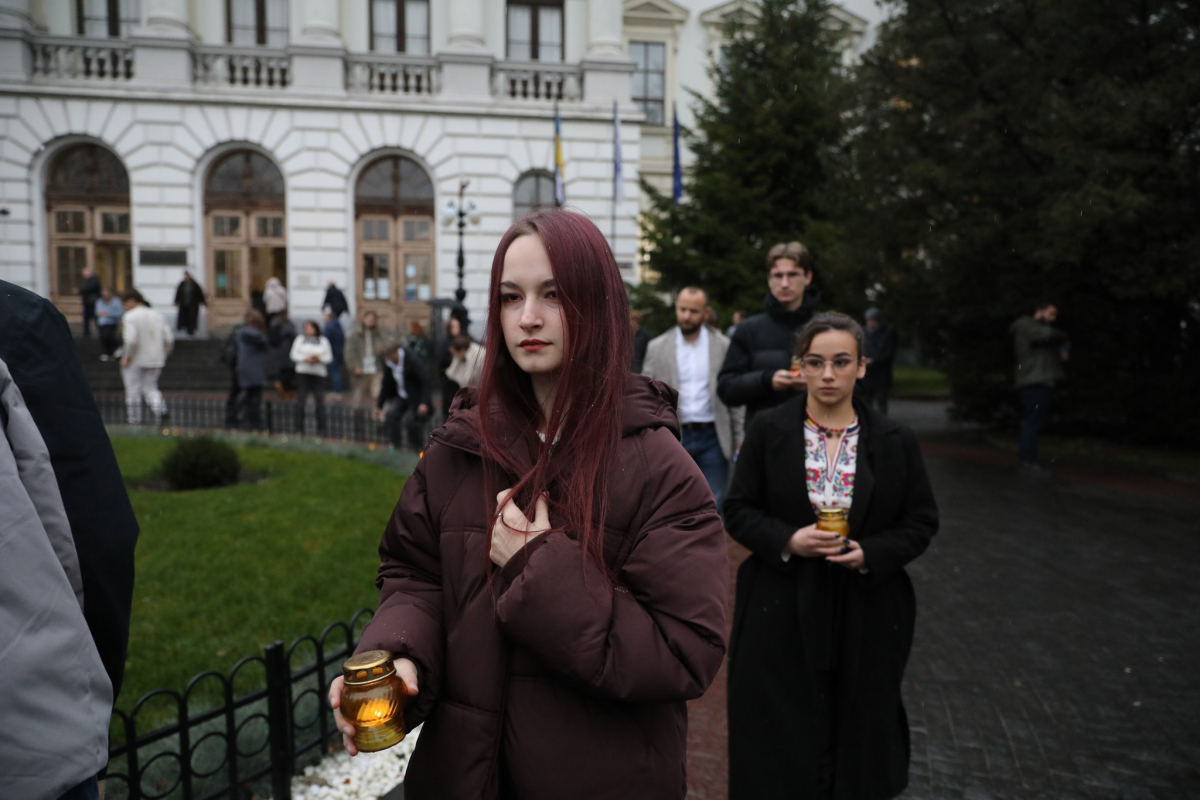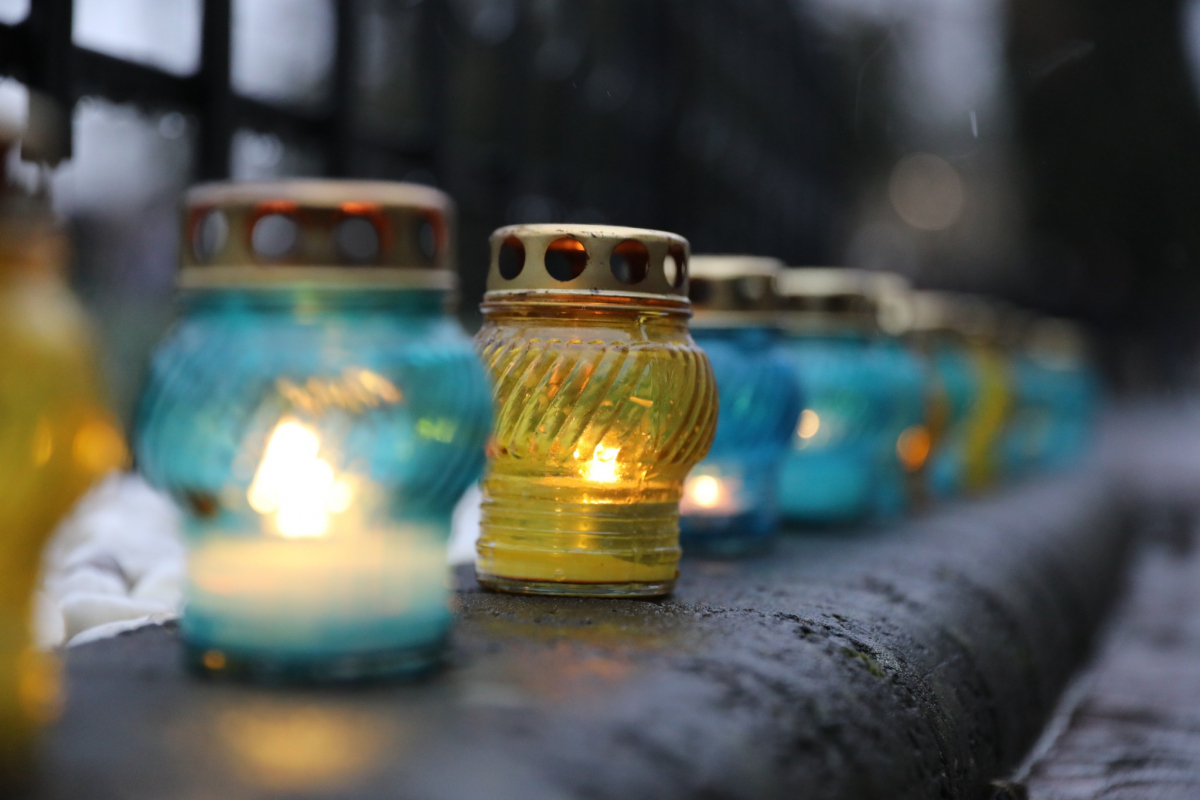On 21 November, 2025, an Hour of Requiem in honour of the victims of the Holodomor-Genocide of 1932–1933, as well as a presentation of the exhibition of the National Museum of the Holodomor-Genocide, was held in the main building of Lviv Polytechnic National University. Lviv Polytechnic annually honours the memory of the victims of the Holodomor, and this year’s event was an important continuation of this tradition. Representatives of the academic community and students of the university joined the event.
The event began with a minute of silence. The first to speak was the university chaplain, Father Ihor Khomichak. He emphasized the value of human dignity, the role of Christian education and the need to preserve the memory of the crimes of the totalitarian regime, which took the lives of millions of Ukrainians. The clergyman noted that society must educate the younger generation so that such tragedies never happen again, and the memory of the past becomes the basis for a responsible future of Ukraine.
Rector of Lviv Polytechnic, Professor Nataliia Shakhovska, emphasized that knowledge of history is a vital component of national security. According to her, the topic of the Holodomor is still used today by the aggressor as a tool of manipulation, and the Russian army continues to use hunger as a means of pressure on civilians and prisoners of war. The Holodomor of 1932–1933, as well as the mass famines of 1921–1923 and 1946–1947, should be considered as a consistent genocidal policy of Russia towards Ukrainians, which continues even today in the conditions of the modern Russian-Ukrainian war. This was a targeted attack on Ukrainian identity and historical memory with the aim of imposing Soviet policy.
Rector also reminded that the Holodomor has been recognized as an act of genocide by more than 30 countries around the world, and the process of international recognition is ongoing. She noted that modern Russian policy largely echoes the actions of the Bolshevik leaders a century ago.
Nataliia Shakhovska said that the presented exhibition of the National Museum of the Holodomor-Genocide is an important tool for spreading the truth about crimes committed against Ukrainians. She stressed that the right to justice cannot be delegated to others: every crime of the aggressor must be identified and punished.
